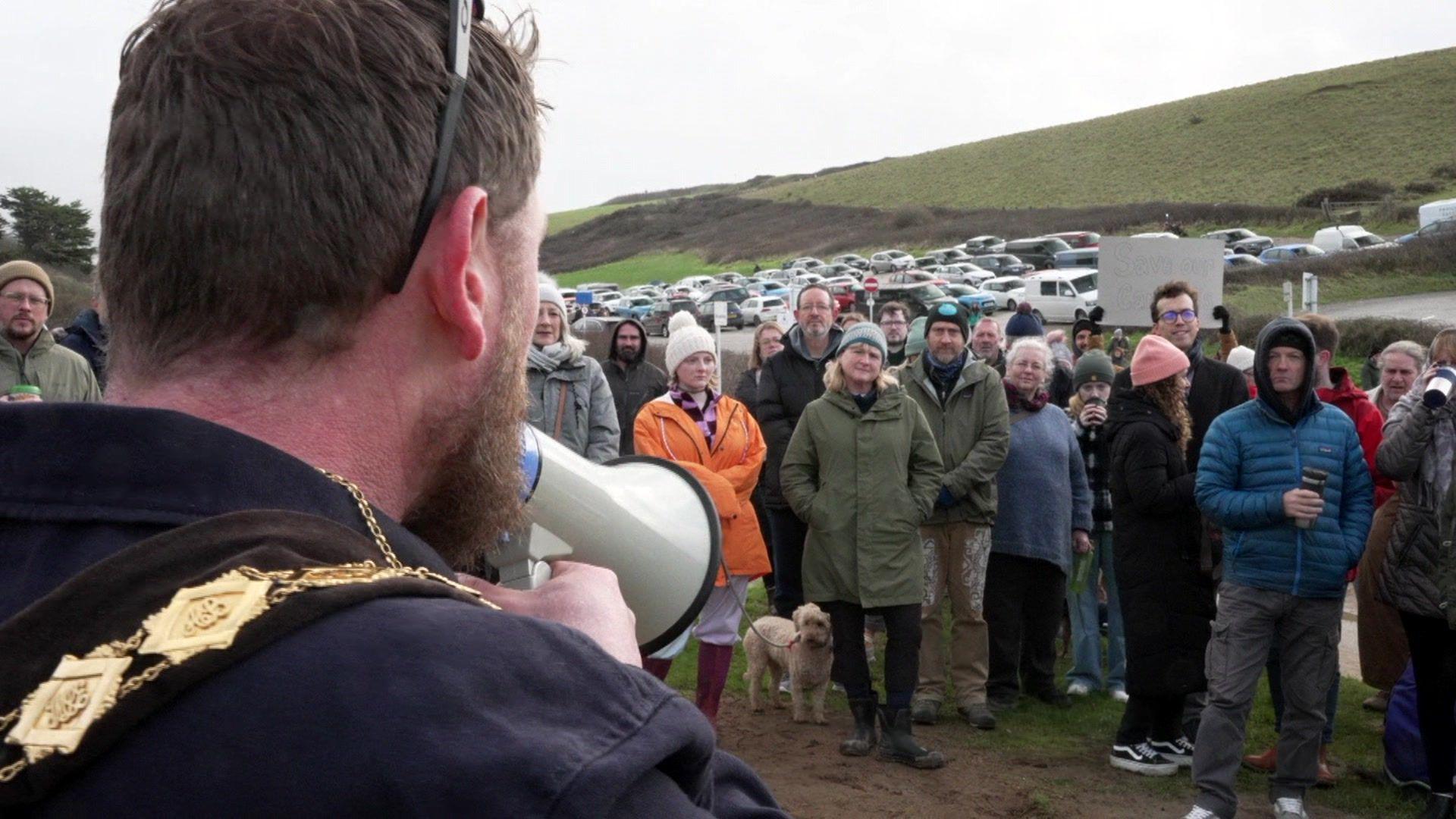Charity chief addresses headland car park concerns
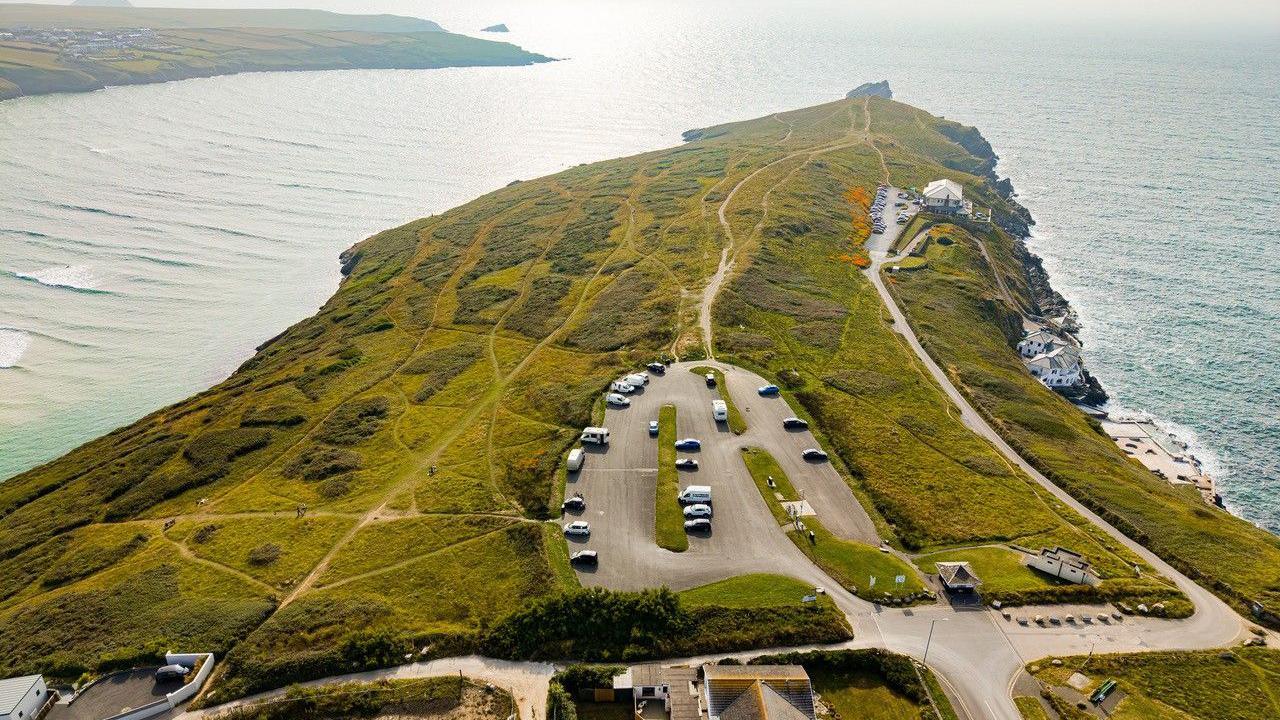
Cornwall Council has handed ownership of East Pentire Headland to Cornwall Heritage Trust
- Published
A Cornwall heritage charity has moved to allay concerns after it was handed East Pentire Headland by the local council.
Cornwall Council gave the county wildlife site, on the historic clifftop in Newquay, to Cornwall Heritage Trust (CHT) on Monday.
Cornwall councillor Joanna Kerry joined residents in questioning CHT's plans to hand the headland car park to a private parking management company, which would install automatic number plate recognition cameras, and also a decision to remove litter bins.
CHT chief executive Cathy Woolcock said the car park prices would not change, winter parking would remain free of charge and the charity had agreed to reinstate litter bins at the end of August.
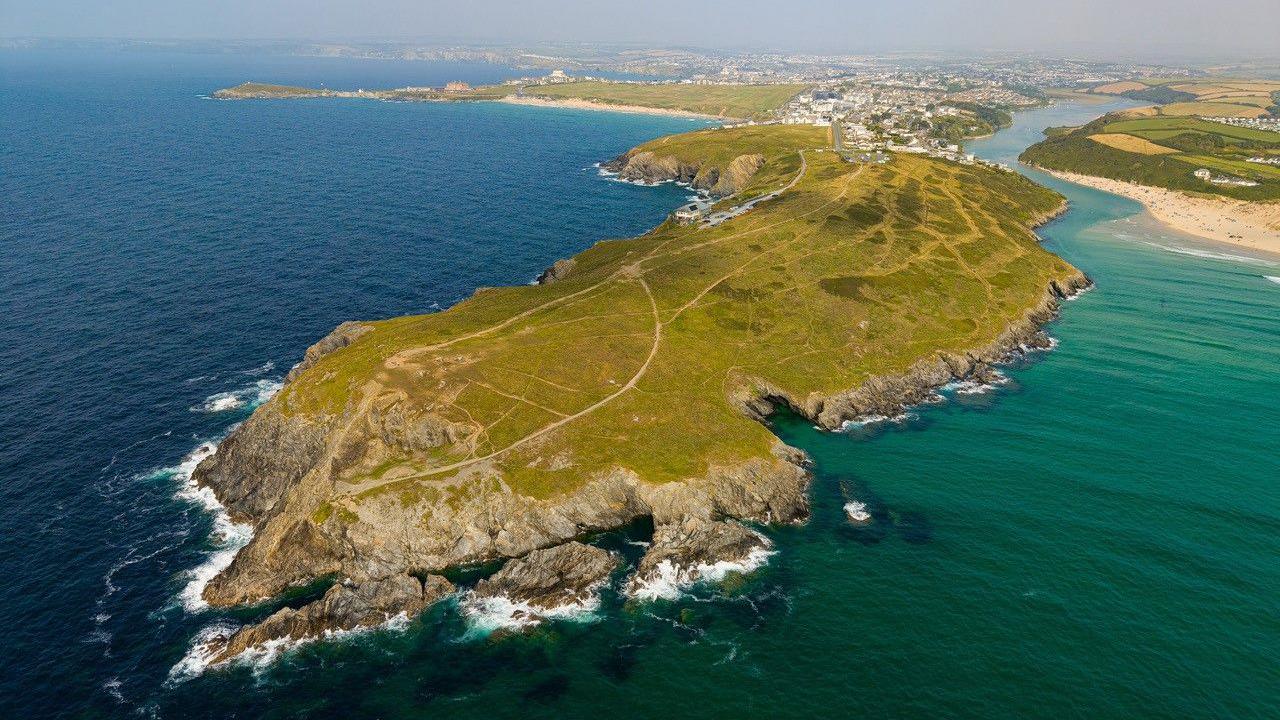
Ms Woolcock said the litter bins would be returned to the car park at the end of August
Ms Woolcock told BBC Radio Cornwall that NPC, the private parking enforcement company the charity had selected, was "the best option" for the charity.
She said: "I know some people would like us to have a physical presence on the site, a person in a hut, but that's not an option for us, so we have to use a parking company."
She said after "a rigorous process" CHT had found "an approachable, amenable and flexible" company, NPC.
Regarding the litter bins, she said like many other charities, CHT had a "no litter bins policy" on its 18 sites across the county.
"We understand that policy is not fit for East Pentire Headland so we have listened to what everybody has said and we will be putting the bins back in a fortnight's time," she explained.
Removing waste from the car park would cost the charity more than £7,000 a year, she added, so she encouraged visitors to the headland to take their waste home with them.
Ms Woolcock added the headland held evidence of human activity dating back more than 8,000 years and contained a number of archaeological remains, including bronze age barrows.
She said it was a popular spot for marine wildlife watching and designated a county wildlife site for its wide variety of mosses and bird life.
The headland was home to a large number of skylarks, a Red List species of conservation concern due to significant population decline, she added, along with kestrels, stonechat and peregrine falcons.
Follow BBC Cornwall on X, external, Facebook, external and Instagram, external. Send your story ideas to spotlight@bbc.co.uk, external.
- Published18 June
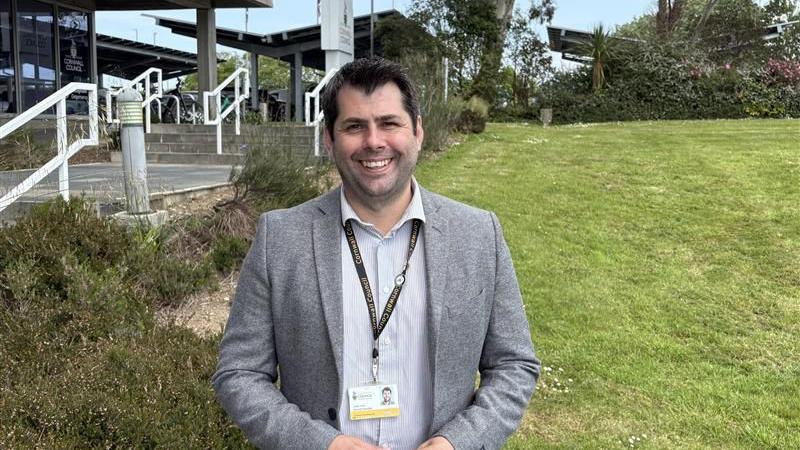
- Published12 May
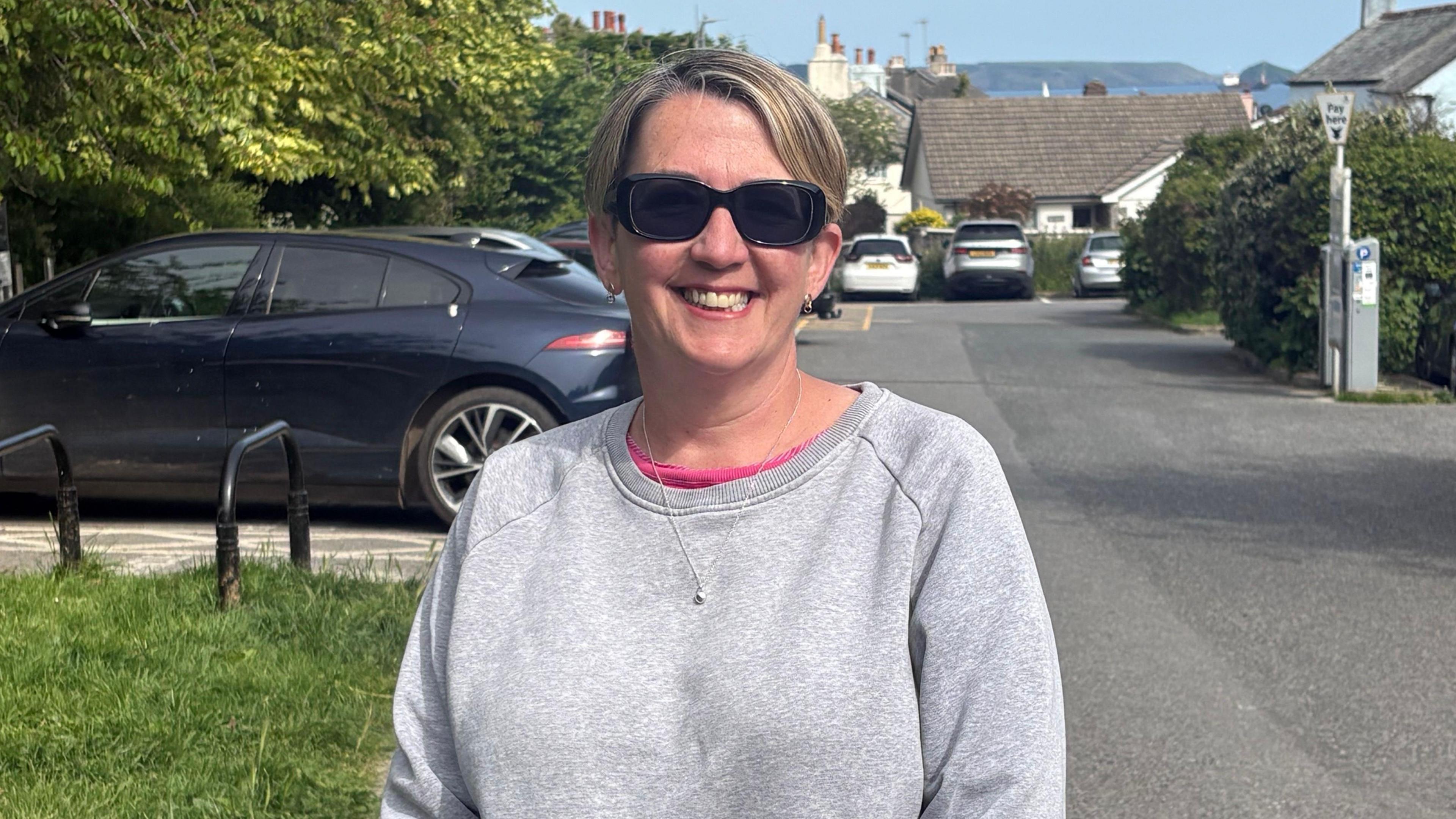
- Published11 January
